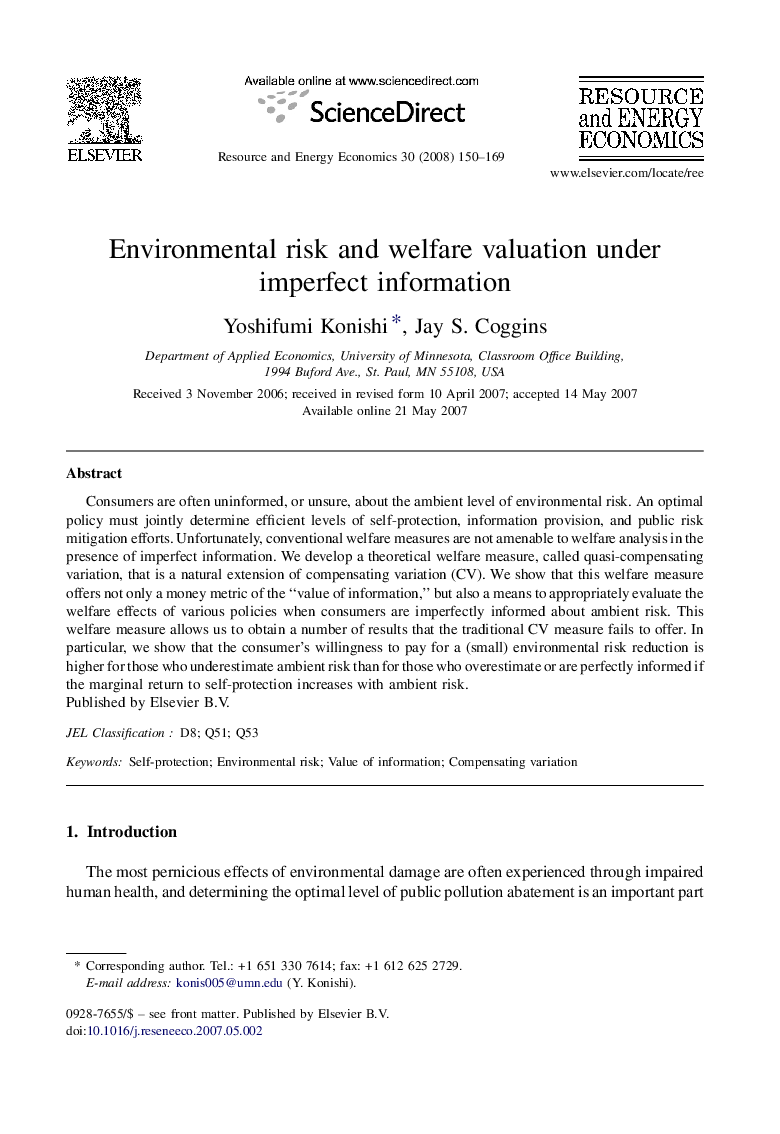| Article ID | Journal | Published Year | Pages | File Type |
|---|---|---|---|---|
| 986051 | Resource and Energy Economics | 2008 | 20 Pages |
Consumers are often uninformed, or unsure, about the ambient level of environmental risk. An optimal policy must jointly determine efficient levels of self-protection, information provision, and public risk mitigation efforts. Unfortunately, conventional welfare measures are not amenable to welfare analysis in the presence of imperfect information. We develop a theoretical welfare measure, called quasi-compensating variation, that is a natural extension of compensating variation (CV). We show that this welfare measure offers not only a money metric of the “value of information,” but also a means to appropriately evaluate the welfare effects of various policies when consumers are imperfectly informed about ambient risk. This welfare measure allows us to obtain a number of results that the traditional CV measure fails to offer. In particular, we show that the consumer’s willingness to pay for a (small) environmental risk reduction is higher for those who underestimate ambient risk than for those who overestimate or are perfectly informed if the marginal return to self-protection increases with ambient risk.
